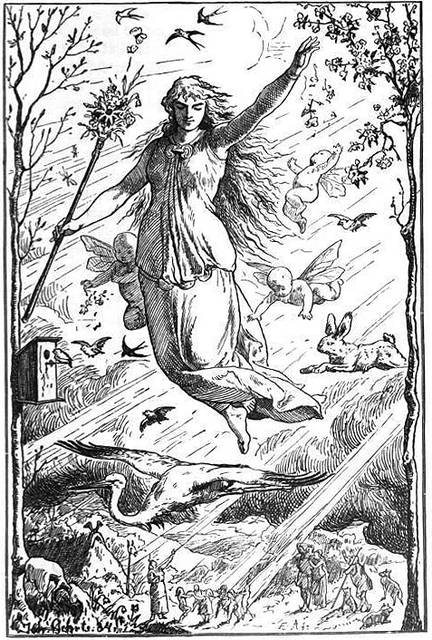One of the most holy days in Christianity will be celebrated Sunday, the day marking Jesus’ resurrection three days after the crucifixion at Calvary. It is called many things: Pascha, Resurrection Sunday and, of course, Easter.
But there is one thing that has always invited mass confusion: What in the world do rabbits and eggs have to do with Christ?
Well, in as far as a literal sense, nothing. But you know how traditions go, something is always borrowed from something else.
In this case, Paganism.
See, the English word “Easter” is derived from an ancient Germanic goddess named “Ostara” who represented springtime, the morning and — wait for it — the “East.”
Ahhh …
Pagans rituals celebrating Ostara were held in the Springtime and often included things traditionally associated with fertility and new life — rabbits and eggs.
Over the years, Ostara was slowly pulled back from the scenes as Christianity began to take hold in Europe but some of the traditions managed to stick around.
For instance, although no longer a symbol of fertility, the Easter Bunny was first depicted in recorded folklore in 1682, originating from German Lutherans — but he wasn’t the friendly egg-delivering rabbit we know today.
Back then, “The Easter Hare” as he was known, was more of a judge — evaluating whether or not the local children had been good enough to deserve a treat, a hard boiled egg.
The eggs themselves were often decorated with elaborate designs and vibrant colors. The most famous egg decorator was arguably Peter Carl Fabergé whose jeweled creations were given as gifts to the Russian Tsars Alexander III and Nicholas II.
Even today, Fabergé eggs can fetch huge sums of money at auction, as did Fabergé’s “Winter Egg” which sold for $9.6 million in 2002.
But whether jeweled or simply colored by children with dye, Easter eggs — and the bunny that brings them — has become an important part of American culture.
On Sunday, thousands and thousands of children all across the world will receive Easter baskets and go hunting for the elusive eggs — whether they be hard boiled or plastic and stuffed with goodies — before sitting down to a traditional Easter dinner with friends and family.
But for you — whether the holiday is a solemn religious event or a lighthearted celebration with a bunny — make it a good one.
Happy Easter.

